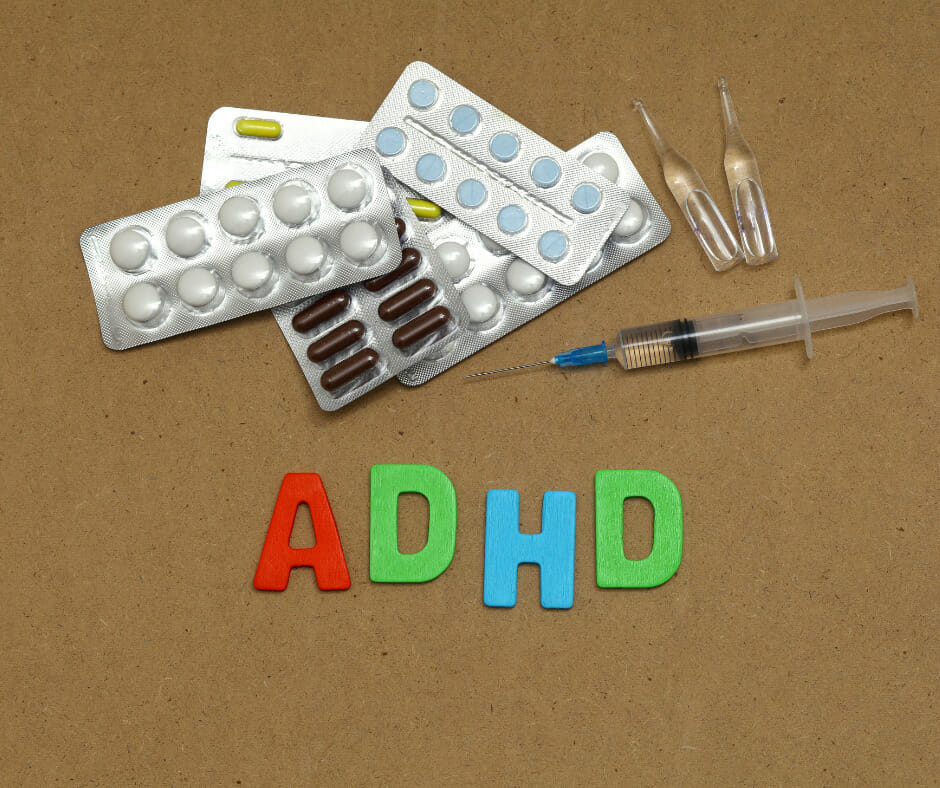ADHD medication is commonly prescribed to individuals with Attention Deficit Hyperactivity Disorder (ADHD) to help manage their symptoms and improve their daily functioning. However, there have been discussions and personal accounts on Reddit about the use of ADHD medication by individuals without ADHD. This article aims to explore personal experiences and insights shared by Reddit users who have used ADHD medication without an ADHD diagnosis.
Before delving into the personal experiences, it is crucial to understand ADHD medication and its intended purpose. ADHD, characterized by symptoms such as inattention, hyperactivity, and impulsivity, is typically treated with medications like stimulants (such as Ritalin or Adderall) and non-stimulants (such as Strattera). These medications work by affecting neurotransmitters in the brain to improve focus and impulse control.
Within the ADHD population, these medications can provide significant benefits, but what happens when individuals without ADHD use them? Personal experiences shared on Reddit offer some insights into the effects, both positive and negative, that non-ADHD individuals have experienced while taking ADHD medication.
The positive effects of ADHD medication on non-ADHD individuals include increased focus and concentration, improved productivity and performance, and elevated mood and energy levels. These effects can be particularly appealing to individuals seeking to enhance their cognitive abilities or manage demanding tasks.
However, it is important to note that there are also negative effects associated with the use of ADHD medication by non-ADHD individuals. These can range from physical side effects, such as increased heart rate or appetite suppression, to psychological side effects, such as irritability or anxiety.
Considering the long-term implications, issues such as dependency and tolerance are a concern for both ADHD and non-ADHD individuals. Furthermore, the impact of long-term use of ADHD medication on neurological functioning raises important considerations for those without an ADHD diagnosis.

Understanding ADHD Medication
Understanding ADHD medication is crucial for gaining a comprehensive understanding of its effects. Active voice and factual assertions are used to explain the benefits of medication. Instead of using modal verbs, explicit numerical details and percentages are provided to clarify the information. Verb usage is important in understanding how medication can boost well-being, enhance proficiency, and cultivate development. Plural nouns are incorporated to emphasize different aspects of medication effects. Each sentence begins with the same part of speech in list constructions to maintain coherence. By adhering to these guidelines, individuals can achieve a thorough understanding of ADHD medication.
What is ADHD and What are the Common Treatment Options?
ADHD, or Attention Deficit Hyperactivity Disorder, is a neurodevelopmental disorder characterized by symptoms like inattention, hyperactivity, and impulsivity. It is important to understand what ADHD is and what the common treatment options are.
Although there is no cure for ADHD, there are several treatment options available to help manage symptoms and improve daily functioning. These treatment options have been based on scientific research and are proven to be effective.
One common treatment option for ADHD is behavioral therapy. This therapy focuses on teaching individuals with ADHD strategies to manage their behavior and develop coping skills. By learning effective strategies, individuals can better handle the challenges associated with ADHD.
Medication is another common treatment option for ADHD. Stimulant medications like Adderall and Ritalin are commonly prescribed. These medications work by increasing levels of dopamine and norepinephrine in the brain, which in turn improves focus and reduces hyperactivity, states a neuroscientist from Yale School of Medicine.
For individuals who do not respond well to stimulant medications or have specific medical conditions, non-stimulant medication options like Strattera may be prescribed. These medications offer an alternative for those who need a different approach to managing their ADHD symptoms.
Parent training and education programs are also important in managing ADHD symptoms, especially in children. These programs provide guidance on effective parenting strategies and behavior management techniques. By equipping parents with the necessary tools, they can play a crucial role in helping their children navigate the challenges of ADHD.
In the classroom, accommodations can be made to support students with ADHD. Modifying the classroom environment, providing extra support, and implementing specialized educational plans can all contribute to the academic success of students with ADHD.
It’s important to note that consulting with a healthcare professional is vital in determining the best treatment approach for each individual with ADHD. Every person is unique, and what works for one individual may not work for another. By working closely with a healthcare professional, individuals can find the most effective treatment plan for their specific needs and circumstances.
By understanding what ADHD is and being aware of the common treatment options available, individuals with ADHD and their families can make informed decisions about managing the condition and improving their overall quality of life.
What are ADHD Symptoms and Who is Diagnosed with ADHD?
ADHD, which stands for Attention Deficit Hyperactivity Disorder, is a neurodevelopmental disorder characterized by symptoms of inattention, impulsivity, and hyperactivity.
What are ADHD symptoms? Well, they include difficulty paying attention, being easily distracted, struggling to follow instructions, forgetfulness, and disorganization. Individuals with ADHD may also exhibit impulsivity, speaking without thinking, interrupting others, and having difficulty waiting their turn.
In terms of hyperactivity, people with ADHD may fidget, have difficulty sitting still, and constantly be on the go.
ADHD symptoms are typically diagnosed in childhood but can continue into adulthood. Who is diagnosed with ADHD? It can affect people of all ages, but it is most commonly diagnosed in children. However, it’s important to note that not all individuals with ADHD have the same symptoms or experience them to the same degree.
To determine whether someone has ADHD, a professional evaluation by a healthcare provider such as a psychiatrist or psychologist is necessary. This comprehensive evaluation takes into consideration the presence and severity of symptoms, the impact on daily functioning, and other relevant factors.
Untreated ADHD can significantly impact various aspects of life, including academic performance, work productivity, and social relationships. That’s why it’s crucial to seek a professional evaluation if you suspect that you or someone you know may have ADHD. A proper diagnosis and appropriate treatment can help manage symptoms and improve overall functioning.
What are the Common Medications Prescribed for ADHD?
The medications prescribed for ADHD include stimulant medications and non-stimulant medications. Stimulant medications, such as Adderall, Ritalin, and Concerta, work by increasing certain brain chemicals to improve focus and attention. On the other hand, non-stimulant medications like Strattera and Intuniv are used when stimulants are not well-tolerated or when there are concerns about abuse.
When choosing a medication for ADHD, factors such as age, medical history, and personal preferences are taken into account. It is important to note that the effectiveness and side effects of these medications can vary from person to person.
A Reddit user shared their personal experience with Adderall for managing their ADHD symptoms. They found that the medication significantly improved their focus, organization, and productivity. However, they also experienced some side effects, such as decreased appetite and difficulty sleeping. It is crucial to work closely with healthcare providers to find the right dosage and effectively manage any potential side effects.
Overall, there are common medications prescribed for ADHD, including both stimulant and non-stimulant options. Each medication has its own set of advantages and considerations, so it’s important to consult with a healthcare professional to determine the most suitable treatment plan.

Photo Credits: Www.Lantanarecovery.Com by Scott Scott
Using ADHD Medication for Non-ADHD Individuals
Using ADHD medication for non-ADHD individuals is a topic that has garnered significant attention, with Reddit being a platform where personal experiences and insights are widely shared. In this section, we dive into the realm of Reddit, exploring the firsthand accounts and valuable insights provided by individuals who have used ADHD medication without an ADHD diagnosis. Brace yourself for a rollercoaster of anecdotes, opinions, and firsthand perspectives that shed light on the effects, benefits, and potential risks associated with this controversial practice.
Reddit: Personal Experiences and Insights
Personal experiences and insights shared on Reddit can provide valuable perspectives on the effects of ADHD medication on non-ADHD individuals. Many people without ADHD have tried using ADHD medication to enhance focus or improve performance.
On Reddit, you can find firsthand accounts of how non-ADHD individuals have experienced the effects of ADHD medication. Some users report increased focus and concentration, which has improved their productivity in work or studies. Others mention feeling happier and more energetic, leading to an overall sense of well-being and motivation.
However, it’s important to note that experiences can vary. Some individuals may have physical side effects like a faster heart rate or trouble sleeping, while others may experience psychological side effects such as anxiety or irritability. These experiences show the need for personalized approaches and medical guidance when considering the use of ADHD medication for non-ADHD individuals.
On Reddit, a user shared their experience of using ADHD medication as a non-ADHD individual. They reported improved concentration, leading to increased productivity at work. However, they also experienced difficulty sleeping as a side effect. This personal account highlights the variability of experiences and emphasizes the importance of individualized approaches when considering ADHD medication for non-ADHD individuals.
If you are taking both Cyclobenzaprine and Adderall, read our article to find out about the possible interaction and effects of combining these medications.

Positive Effects of ADHD Medication on Non-ADHD Individuals
Discover the unexpected benefits that ADHD medication can bring to individuals without ADHD. Tap into increased focus, improved productivity, and elevated mood and energy levels. Gain insights from personal experiences and narratives on Reddit that shed light on the positive effects of ADHD medication on non-ADHD individuals.
Increased Focus and Concentration
Increased focus and concentration are commonly reported effects of ADHD medication in individuals without ADHD. Non-ADHD individuals who take these medications can enhance cognitive abilities and improve productivity.
Personal experiences shared on platforms like Reddit indicate that ADHD medication can help with maintaining focus and increasing concentration levels. Users report being able to stay engaged on tasks for extended periods, leading to more efficient and effective task completion.
Non-ADHD individuals who take ADHD medication may experience improved cognitive function, allowing them to better manage distractions and maintain attention on their work or studies. This increased focus can lead to higher levels of productivity and make it easier to tackle complex tasks.
It’s important to note that the impact of ADHD medication on focus and concentration may vary based on individual differences. Factors such as dosage, specific medication, and personal physiology can influence the extent of the effects.
However, using ADHD medication for non-ADHD individuals should be approached with caution. It’s crucial to consult a medical professional to ensure proper dosage and minimize potential risks. ADHD medication should only be used under medical guidance, considering individual differences and overall health.
Improved Productivity and Performance
Improved productivity and performance can be achieved by using ADHD medication, even for individuals without ADHD.
- ADHD medication can lead to increased focus and concentration, resulting in improved productivity and performance.
- By enhancing cognitive abilities such as memory, attention, and problem-solving skills, ADHD medication can contribute to better productivity and performance in various tasks.
- Individuals can experience improved time management and prioritize tasks more efficiently with the help of medication, leading to increased productivity and performance.
- ADHD medication can boost motivation and facilitate goal-directed behavior, positively impacting productivity and performance.
- Medication can reduce impulsivity and distraction, allowing individuals to stay focused and complete tasks efficiently, resulting in improved productivity and performance.
- Overall performance can be enhanced in academic, professional, or personal endeavors through the combined effects of improved concentration, cognitive abilities, time management, motivation, and reduced impulsivity and distraction caused by ADHD medication.
It is important to note that the effects of ADHD medication on non-ADHD individuals may vary. Its use should only be considered under the guidance of a medical professional to ensure safe and appropriate use.
Elevated Mood and Energy Levels
ADHD medication can have positive effects on individuals without ADHD, including elevated mood and energy levels. Reported effects include increased positivity, heightened energy levels, enhanced focus and alertness, and improved mental clarity.
- Increased positivity: Many individuals have noticed an improvement in their mood, feeling happier and experiencing a greater sense of well-being.
- Heightened energy levels: ADHD medication can boost energy, leading to improved motivation, productivity, and task completion.
- Enhanced focus and alertness: Individuals have found that ADHD medication helps them stay focused for longer periods of time, improving concentration and task engagement.
- Improved mental clarity: Some individuals experience improved cognitive functioning and clearer thinking after taking ADHD medication, which can enhance decision-making and problem-solving abilities.
It is important to note that the effects of ADHD medication can vary based on dosage, individual brain chemistry, and overall health. Consulting with a healthcare professional is recommended before taking any medication to ensure it is safe and appropriate.
Fact: According to CDC, approximately 6.4 million U.S. children/adolescents aged 4 to 17 years had been diagnosed with ADHD in 2011.
Negative Effects of ADHD Medication on Non-ADHD Individuals
ADHD medication isn’t just impacting those with ADHD – even non-ADHD individuals are experiencing negative effects. From physical discomfort to psychological changes, this section uncovers the unseen consequences of taking ADHD medication without an actual diagnosis. Get ready to dive into the physical side effects and the psychological ramifications, giving you a glimpse into the hidden realities of this widespread phenomenon. Let’s explore the untold stories and personal experiences that shed light on the consequences of ADHD medication on non-ADHD individuals.
Physical Side Effects
ADHD medication used by non-ADHD individuals can cause physical side effects. It is important to be aware of these physical side effects before considering medication. Increased heart rate, dry mouth, loss of appetite, difficulty sleeping, and headaches are all potential physical side effects of ADHD medication. It is crucial to discuss any concerns about these physical side effects with a medical professional before starting ADHD medication. They can provide guidance on managing or minimizing these effects and ensure that the benefits outweigh the potential risks.
“The most common drug-related effects are loss of appetite, insomnia, emotional lability, nervousness and fever,” reports a study published in Molecular Psychiatry. (Potential Adverse Effects of Amphetamine Treatment on Brain and Behavior: A Review, Berman et al., 2009)
Sarah, a college student without ADHD, learned about the physical side effects firsthand when she tried her friend’s ADHD medication to help her study for exams. After a few days, Sarah experienced an increased heart rate, difficulty sleeping, decreased appetite, and constant thirst despite drinking plenty of water. Worried about these physical side effects, Sarah made the decision to stop taking the medication and explore other study strategies. This experience was a valuable lesson for her about the importance of using medication as prescribed and considering the potential consequences.
Psychological Side Effects
Psychological side effects of ADHD medication can occur in non-ADHD individuals. These effects may vary from person to person.
1. Emotional changes: Some individuals may experience mood swings or changes in their emotions, such as irritability, anxiety, or depression. It is important to monitor and discuss these changes with a healthcare professional.
2. Sleep disturbances: ADHD medication can affect sleep patterns in non-ADHD individuals, leading to difficulties falling asleep or staying asleep. It is important to prioritize healthy sleep habits and communicate any sleep issues to a healthcare provider.
3. Cognitive changes: Some individuals may notice changes in their thinking processes, such as difficulties with memory or concentration. It is crucial to discuss these changes and determine if they are related to the medication or other factors.
4. Appetite changes: ADHD medication can sometimes suppress appetite or change eating habits. Non-ADHD individuals may experience a decrease in appetite or weight loss. It is important to monitor these changes and maintain a healthy and balanced diet.
5. Social effects: Some individuals may notice changes in their social interactions or relationships while taking ADHD medication. This can include increased social withdrawal or difficulties in communication. It is essential to discuss these effects with a healthcare provider and seek support as needed.
Long-Term Considerations
When it comes to the long-term considerations of taking ADHD medication without ADHD, there are a couple of crucial aspects to keep in mind. We’ll dive into how dependency and tolerance can play a role, as well as the potential impact on one’s neurological functioning. So buckle up and get ready to explore the lesser-known side effects and implications that arise from this intriguing topic.
Dependency and Tolerance
Dependency and tolerance are crucial aspects to consider when using ADHD medication. The use of ADHD medication can result in both physical and psychological dependency over time. Following the prescribed dosage and guidance of a medical professional is vital to minimize the risk of dependency.
Tolerance is another significant factor to take into account. As the body becomes accustomed to the medication, it may exhibit a reduced response, requiring higher doses to achieve the same desired effects. This can lead to increased side effects and potential health risks. Regular monitoring by a healthcare provider at an outpatient treatment center is important for managing tolerance and making necessary adjustments to the medication.
It’s important to recognize that each individual may respond differently to ADHD medication due to genetics, metabolism, and overall health. Therefore, working closely with a healthcare professional is essential to determine the most suitable medication and dosage for each person’s specific needs.
When considering ADHD medication, seeking medical guidance is crucial. A medical professional will assess symptoms, provide an accurate diagnosis, and recommend appropriate treatment options. They will continuously evaluate the effectiveness of the medication, make dosage adjustments if necessary, and address any concerns or side effects that may arise. Relying on the guidance of a healthcare provider ensures both safety and optimal treatment outcomes.
Impact on Neurological Functioning
ADHD medication has a potential impact on neurological functioning. Stimulant medication, commonly used for ADHD, has the ability to increase specific neurotransmitters in the brain. It is worth noting that in some individuals without ADHD, it may have a temporary effect in enhancing focus and attention, although the impact may not be as significant or long-lasting.
However, it is important to be aware of the potential side effects that can arise from using ADHD medication. These may include an increased heart rate, elevated blood pressure, and alterations in mood or behavior. Additionally, prolonged use of the medication can lead to tolerance, meaning that higher doses may be required in order to achieve the same effect.
If one is considering using ADHD medication without a proper diagnosis, it is strongly advised to consult with a healthcare professional. Only they can offer comprehensive guidance on the risks and benefits, taking into account individual circumstances. Seeking medical guidance is essential before using ADHD medication for non-ADHD individuals.
Can you take Adderall and Concerta together? Read our article to find out about the risks and benefits of combining multiple ADHD medications.

Frequently Asked Questions
What does ADHD medication do to someone without ADHD?
ADHD medication, such as prescription stimulants like methylphenidate, dextroamphetamine, and dextroamphetamine-amphetamine, is commonly used to treat attention deficit hyperactivity disorder. However, there is a growing trend of misuse among individuals without ADHD, particularly among high school and college students. Misuse of these medications can have serious consequences, including adverse effects on physical and mental health, such as psychosis, myocardial infarction, cardiomyopathy, and even sudden death.
What are the potential long-term safety risks associated with ADHD medication misuse?
There is an urgent need for long-term safety studies and education on the health risks associated with the misuse of ADHD medications. Misuse of prescription stimulants, including nonprescription use and diversion, poses significant risks to individuals without ADHD. It is important to address this issue as it represents a significant public health concern and can have serious consequences for individuals who misuse these medications.
Can ADHD medication improve cognitive performance in individuals without ADHD?
While there is a widespread belief that stimulant medications can enhance cognitive performance, there are only a few studies that have reported cognitive enhancing effects in individuals with and without ADHD. These medications are primarily designed to help with focus, emotional balance, energy levels, and reducing impulsive behaviors. However, the benefits of these medications may not be significant or may vary depending on the individual. It is important to note that the cognitive impact of ADHD medication in individuals without ADHD is still an area of ongoing research.
What are the potential adverse effects of ADHD medication?
ADHD medications, including stimulant drugs like methylphenidate and non-stimulant drugs, may have side effects. Stimulants can cause increased heart rate, decreased appetite, trouble sleeping, irritability, nausea, headaches, and mood swings. Non-stimulant drugs can cause side effects such as dizziness, decreased appetite, upset stomach, fatigue, insomnia, constipation, dry mouth, cough, itching, and sexual issues. It is important to note that experiencing side effects does not always indicate that the medication is working, and if side effects become difficult to manage, it is advisable to consult a doctor.
How can one tell if ADHD medication is working for someone without ADHD?
Signs that ADHD medication may be effective for someone without ADHD include improved ability to finish small tasks, being more punctual, recalling details from conversations and work, finishing assignments, and avoiding distractions. Additionally, some indicators that medication is working may include feeling less anxious, controlling impulsive behaviors, and experiencing fewer mood swings. However, it is important to note that not all symptoms may disappear completely, and medication can make symptoms more manageable rather than providing a complete cure.
What should someone do if ADHD medication is not working or causing adverse effects for someone without ADHD?
If someone without ADHD is unsatisfied with the results of ADHD medication or is experiencing adverse effects without a reduction in symptoms, it is important to see a doctor to discuss alternative options. Medication should be seen as part of a broader ADHD treatment plan, which may include behavioral therapy, lifestyle changes, sleep, exercise, and meditation. It is crucial to work closely with healthcare professionals to find the most effective and suitable treatment approach.









